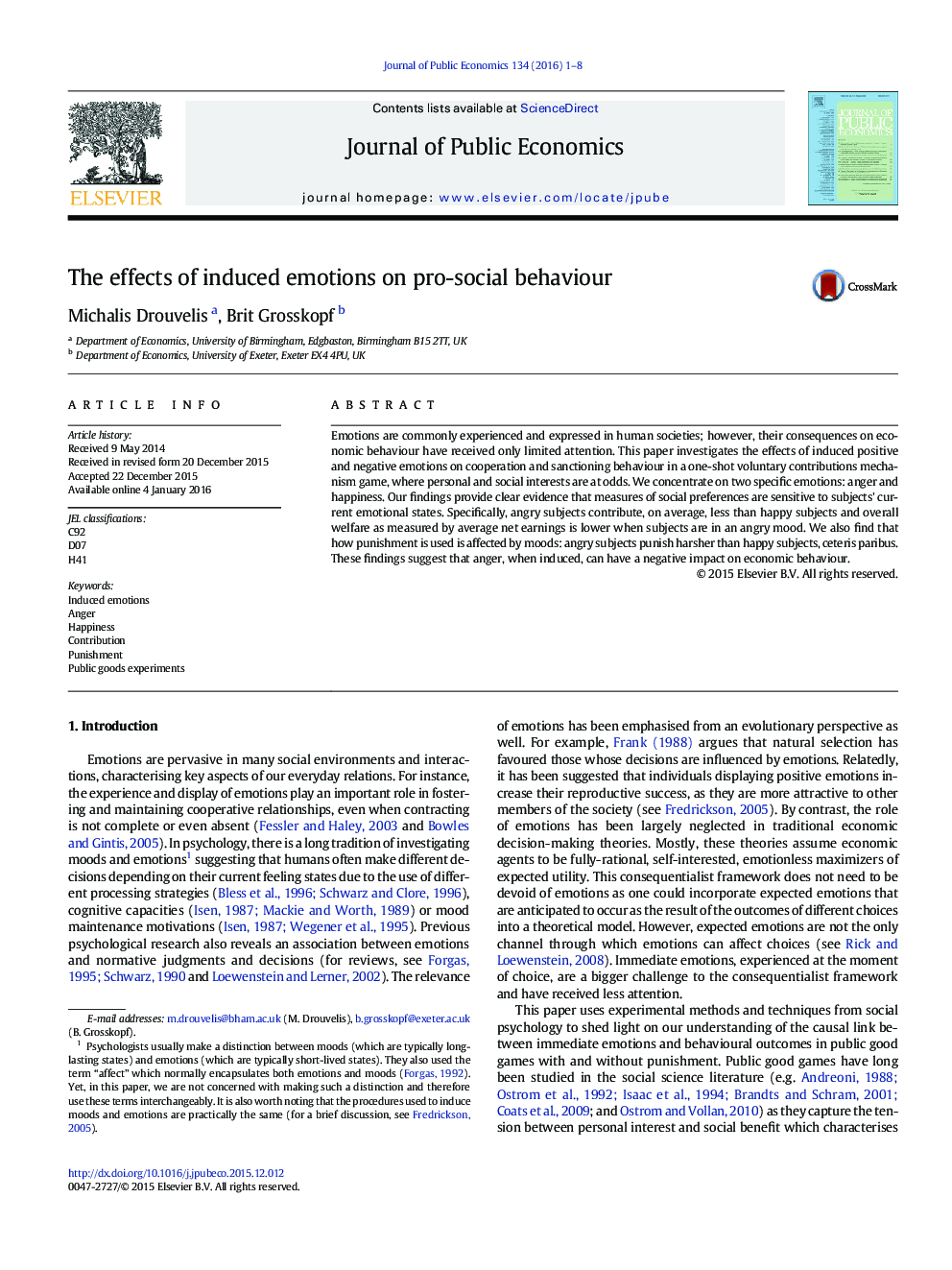| Article ID | Journal | Published Year | Pages | File Type |
|---|---|---|---|---|
| 968646 | Journal of Public Economics | 2016 | 8 Pages |
•We induce happiness and anger in a one-shot VCM game.•We study the effects of such induced emotions on measures of social preferences.•Induced anger causes lower contributions, harsher punishment and lower earnings.•Anger, when induced, is detrimental to economic behaviour.
Emotions are commonly experienced and expressed in human societies; however, their consequences on economic behaviour have received only limited attention. This paper investigates the effects of induced positive and negative emotions on cooperation and sanctioning behaviour in a one-shot voluntary contributions mechanism game, where personal and social interests are at odds. We concentrate on two specific emotions: anger and happiness. Our findings provide clear evidence that measures of social preferences are sensitive to subjects' current emotional states. Specifically, angry subjects contribute, on average, less than happy subjects and overall welfare as measured by average net earnings is lower when subjects are in an angry mood. We also find that how punishment is used is affected by moods: angry subjects punish harsher than happy subjects, ceteris paribus. These findings suggest that anger, when induced, can have a negative impact on economic behaviour.
